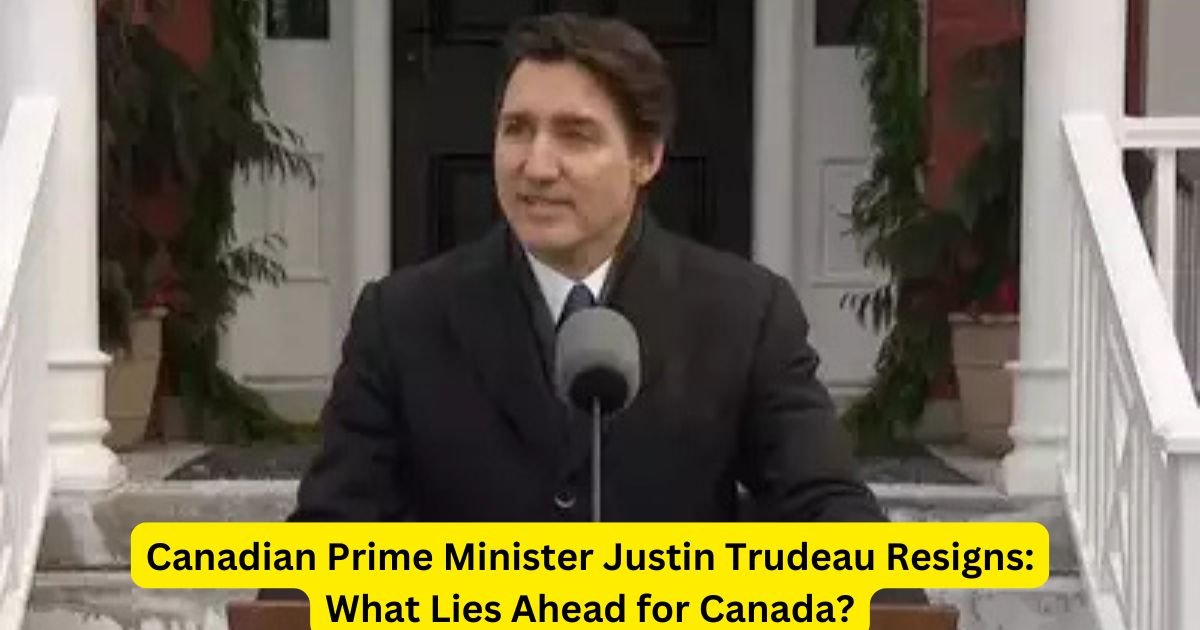Prime Minister Justin Trudeau announced his resignation on Monday, confirming his decision to step down as the leader of Canada’s ruling Liberal Party and as prime minister once a new party leader is elected.
“I will resign as party leader and prime minister after the Liberal Party selects a new leader,” Trudeau, 53, said at a press conference in Ottawa. He added that Canada’s parliament will be suspended until March 24 to allow time for the leadership transition.
During his announcement, Trudeau expressed regret over his inability to reform Canada’s electoral system during his time in office. “If I have one regret as we approach this election — and there are likely many regrets I will reflect on — it is that we couldn’t change the way we elect our governments. Canadians deserve a system that allows them to rank their choices,” he said.
The Road to Resignation
Trudeau’s resignation marks the end of an 11-year tenure as leader of the Liberal Party and nine years as prime minister. His time in office was marked by both progressive reforms and increasing political challenges. The decision to resign comes amid a slump in the Liberal Party’s popularity and a looming general election in which Trudeau was expected to face significant defeat.
Trudeau’s early years in office were characterized by promises of “sunny ways” and progressive policies aimed at addressing climate change and reconciliation with Indigenous communities. However, in recent years, economic frustrations have grown, and Trudeau’s government has faced mounting criticism.
A pivotal moment in his decline was a viral exchange with a steelworker, who accused Trudeau of failing to address rising living costs. “You’re not doing anything for us, Justin,” the worker said — a sentiment echoed by many Canadians.
The resignation of Deputy Prime Minister Chrystia Freeland last year further weakened Trudeau’s government. Freeland’s sudden departure, just before presenting the annual fiscal update, was seen as a protest against Trudeau’s handling of economic policies, which she labeled as “political gimmicks.”
Adding to Trudeau’s challenges are tensions with the United States. President-elect Donald Trump, set to return to office on January 20, has threatened to impose a 25% tariff on Canadian imports. Trump has also made provocative comments about Canada, referring to Trudeau as the “governor” of the “Great State of Canada.”
Next Steps for Canada
The Liberal Party’s national executive will meet this week to outline the leadership selection process. The suspension of parliament aims to give the party time to regroup and choose a new leader before the general election scheduled for October 20.
Potential candidates to succeed Trudeau include former Bank of Canada and Bank of England governor Mark Carney, current Foreign Minister Mélanie Joly, and former Deputy Prime Minister Chrystia Freeland. Party insiders hope that fresh leadership can revitalize the Liberal Party ahead of the upcoming election.
Current polling places the Liberals behind the Conservative Party, led by Pierre Poilievre, by more than 20 points. Poilievre, known for his fiery rhetoric and populist appeal, has been gaining support across Canada.
In his resignation speech, Trudeau criticized Poilievre’s vision for Canada, arguing that his conservative policies would roll back progress on key issues like climate change and diversity.
“Backing off from climate action and attacking the institutions that make our country strong is not the way forward,” Trudeau said. “Canadians deserve a hopeful, optimistic future. Pierre Poilievre is not offering that.”
Reactions and Speculations
The news of Trudeau’s resignation has drawn mixed reactions. President-elect Trump took to his social media platform, Truth Social, to propose a controversial idea of merging Canada with the United States, claiming it would eliminate tariffs and strengthen both nations.
“Many Canadians love the idea of becoming the 51st state. Together, we would be a great nation,” Trump said.
Poilievre, meanwhile, seized on Trudeau’s resignation to rally Canadian voters. In a video posted on X, formerly known as Twitter, he outlined his vision for Canada, promising to “take back control” on issues like immigration, crime, and inflation.
“Canadians are ready to take back control of their country,” Poilievre said. “We’ll cap spending, axe taxes, secure borders, and restore freedom.”
Freeland, a potential contender to replace Trudeau, thanked him for his service in a message on X, writing, “I wish him and his family the very best.” She did not comment on whether she would enter the leadership race.
As Canada navigates this political transition, all eyes are on the Liberal Party’s next move. With a critical election on the horizon, the party’s choice of leader could determine the future direction of the country.
Read More News:
Extremely Dry Winter Conditions Expected in British Columbia
